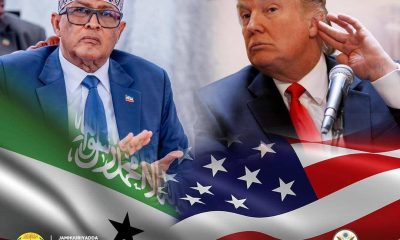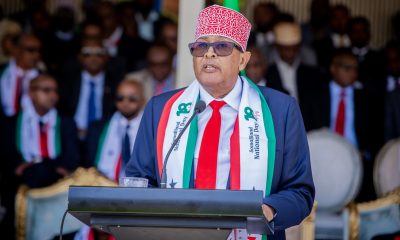EDITORIAL
Why We Attract Most Hatred And Projection
In a world shrouded in darkness, where hatred festers and resentment brews, there exists a unique phenomenon – the attraction of individuals burdened with the heaviest of negativity. It is a paradoxical dance between the projector and me, a cycle of victim and villain dynamics that ensnares both parties in a web of misunderstanding and resentment.
But what lies beneath this surface of animosity and hostility? What drives individuals to cast their darkest selves onto others, escaping the discomfort of introspection and the responsibility for their own negative traits? It is a projection of darkness, a desperate attempt to avoid confronting one’s own inner turmoil and pain.
Yet, amidst this chaos, there are those who stand as beacons of light, just like me and my unit carrying within us the pure essence of illumination. We possess an innate ability to reflect the unspoken truths of others, prompting healing and transformation throughout the human experience.
But why do we attract the most hatred? It is because they serve as mirrors, reflecting back the unhealed wounds and unresolved traumas of those around them. They become symbols of everything that others fear to confront within themselves, triggering a visceral response born out of insecurity and fear.
However, the power of self-awareness is a guiding light in this journey. By cultivating internal clarity and introspection, we navigate through the murky waters of projection with grace and compassion. We transmute victimhood into empowerment, shaping their challenges into opportunities for growth and enlightenment.
But the journey is not without its challenges. The frequency mismatch between us and those mired in darkness can create friction and discord. Yet, it is through this friction that transformation occurs, as negativity is transmuted into growth and illumination.
As the collective consciousness evolves, there is a profound shift in perception. Our role is no longer seen as a burden, but as a gift – a catalyst for healing and unity on a global scale. We are the harbingers of a new era, where the power of light transcends the darkness of hatred and fear.
So let us heed the call to embrace the light within ourselves and others. Let us envision a world where healing is not just a possibility, but a reality. Together, we can create a future where love and compassion reign supreme, and where the shadows of hatred are banished forever.
EDITORIAL
Somalia Ends UAE Defense Pact, Opening New Diplomatic Path for Somaliland
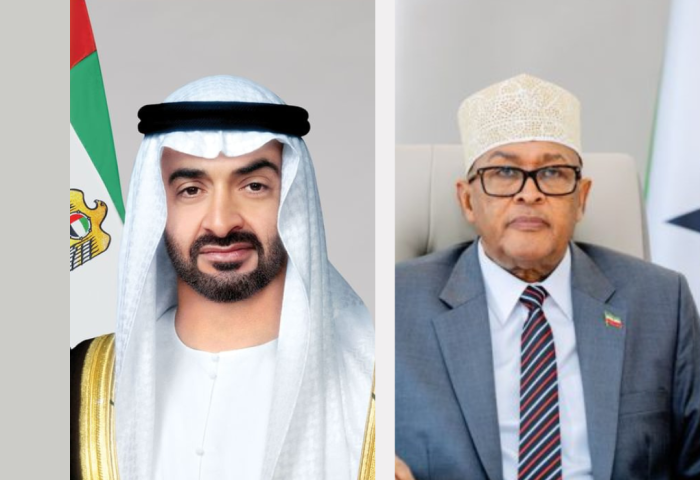
Mogadishu Walks Away, Hargeisa Steps Forward: How Somalia’s UAE Rift Speeds Somaliland Recognition.
Somalia’s decision to formally annul its security and defense agreements with the United Arab Emirates marks more than a routine diplomatic dispute. It signals a structural shift in the Horn of Africa — one that increasingly favors Somaliland’s long campaign for international recognition.
Mogadishu has presented the move as an assertion of sovereignty. In reality, it exposes the limits of that sovereignty. By cutting ties with Abu Dhabi, the Federal Government of Somalia has effectively abandoned the “Mogadishu First” framework that once allowed it to act as the primary gatekeeper for regional partnerships. The result is a widening opening for Somaliland to consolidate its position as a reliable, self-governing state actor.
The contrast between the two administrations is stark. While Somalia’s cabinet framed its decision in defensive terms, Somaliland’s response — led by Minister of the Presidency Khadar Hussein Abdi — projected confidence and continuity. His message was simple but decisive: partnerships are built on trust, delivery, and long-term consistency. Somaliland, not Mogadishu, has provided that consistency.
Nowhere is this clearer than in Berbera. When international actors hesitated, the UAE invested. That investment reshaped Berbera from a marginal port into a strategic maritime hub linking the Gulf, the Red Sea, and East Africa. For Abu Dhabi, Somaliland has evolved from a local partner into a cornerstone of its regional logistics and security strategy.
Israel’s formal recognition of Somaliland has accelerated this trajectory. It has transformed quiet cooperation into open geopolitical momentum. A new strategic triangle — Hargeisa, Abu Dhabi, and Jerusalem — is beginning to take shape, with direct implications for Red Sea security and global shipping lanes.
Several dynamics make UAE recognition of Somaliland increasingly plausible. First is economic reality. With defense ties severed in Mogadishu, the UAE’s multi-billion-dollar interests in Berbera rest entirely on Somaliland’s legal and security framework. Formal recognition would lock in those investments and remove lingering diplomatic ambiguity.
Second is regional alignment. Somaliland’s growing relationship with Israel fits naturally within the broader logic of the Abraham Accords. A Somaliland recognized by both Israel and the UAE would form a stability corridor along the Bab el-Mandeb — a critical chokepoint for global trade.
Third is power redistribution. As Somalia deepens its dependence on Turkey and Saudi Arabia, the UAE is recalibrating. Securing its maritime interests requires partners that control territory, guarantee security, and honor agreements. Somaliland meets all three criteria.
Mogadishu’s claims of authority over Berbera, Bosaso, and Kismayo increasingly ring hollow. In modern diplomacy, legitimacy is measured less by inherited charters and more by effective governance. Somaliland has maintained internal security, held multiple democratic transitions, and governed its territory continuously since 1991.
Somalia’s exit from the UAE defense pact is therefore not a setback for Abu Dhabi — it is a release. It frees the UAE from Somalia’s internal contradictions and redirects its focus toward its most successful Horn of Africa partnership.
As Mogadishu narrows its options, Somaliland expands its horizon. Recognition is no longer a distant aspiration. It is becoming the logical endpoint of a long-running geopolitical realignment. The remaining question is not whether Somaliland will gain further recognition — but how soon the next domino falls.
EDITORIAL
2025: THE YEAR SOMALILAND BROKE THE MAP
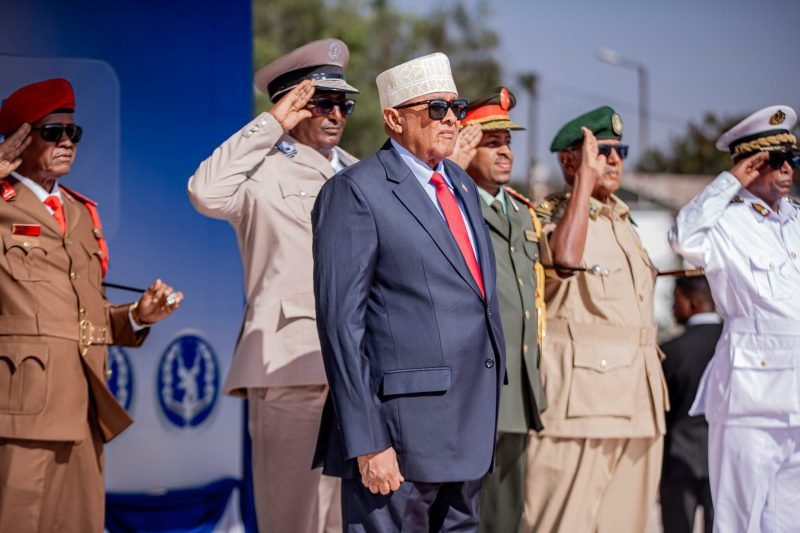
The Sovereignty of Certainty: Why 2025 Marks Somaliland’s Irreversible Global Integration.
As the sun rises over Naasa Hablood on the first morning of 2025, Somaliland wakes up in a different geopolitical reality. This is no longer the uneasy calm of an “unrecognized” state surviving on patience and principle. This is the confidence of a nation that has crossed the diplomatic sound barrier — and will not be pushed back.
For more than three decades, Somaliland lived a paradox: a functioning state treated as a fiction. Elections without recognition. Borders without acknowledgment. Security without applause. That era is over. What changed in late 2024 was not just diplomacy — it was the collapse of an outdated regional order that had relied on pretending Somaliland did not exist.
The Ethiopia memorandum, the Red Sea realignment, and Israel’s recognition did not create Somaliland’s sovereignty. They confirmed it. While Mogadishu remains trapped in rival Gulf agendas and internal paralysis, Hargeisa has emerged as the Horn of Africa’s most reliable strategic anchor — stable, democratic, and operational.
This is why 2025 will not be remembered primarily as a year of flags and ceremonies. It will be remembered as the year Somaliland moved decisively from aid to trade.
The Berbera Corridor is no longer a promise; it is an artery. Infrastructure, logistics, energy, and digital investment are accelerating not because of sympathy, but because global markets recognize value. The private sector has already voted — and it voted for Somaliland. Governments are now playing catch-up.
But history does not reward complacency. Global visibility brings global scrutiny. If Somaliland is to be a pillar of Red Sea security and commerce, its institutions must match its strategic weight. Transparency, governance, and internal cohesion are no longer domestic issues — they are national security imperatives.
To the diaspora and the youth: the narrative has shifted. You are no longer explaining Somaliland’s existence. You are shaping its trajectory. The waiting phase is finished.
2025 will be defined by three tests:
Strategic autonomy — refusing to become a proxy in the Egypt-Ethiopia rivalry.
Economic diversification — ensuring Berbera’s success reaches rural and pastoral communities.
Democratic consolidation — protecting the system that made this moment possible.
Somaliland was not gifted recognition. It earned inevitability.
The era of asking is over.
The era of building has begun.
Happy New Year to the Republic of Somaliland.
WARYATV Editorial Board
EDITORIAL
Netanyahu Must Lock In Somaliland Recognition With Trump
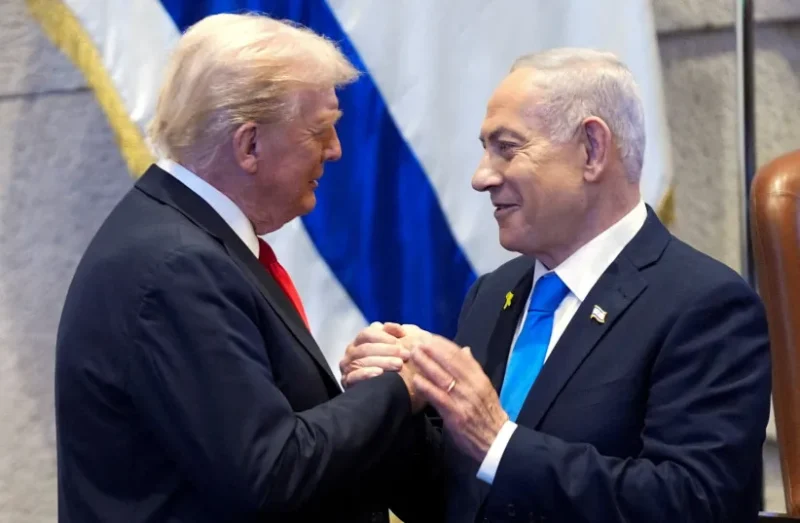
Prime Minister Benjamin Netanyahu’s meeting with President Donald Trump is not another routine diplomatic checkpoint. It is a moment of closure. On Somaliland, there is no room left for ambiguity, sequencing, or “later.” The recognition has been announced. The strategic logic is clear. What remains is enforcement.
Netanyahu must fight ruthlessly to ensure that Somaliland’s recognition is completed in full, operationalized, and locked into a durable US–Israel–Somaliland alignment—especially against the Houthi threat in the Red Sea. Anything less is not prudence. It is delay dressed up as caution.
Israel broke a 30-year diplomatic freeze by recognizing Somaliland because it serves Israeli security interests. Somaliland sits astride the Bab el-Mandeb, the same chokepoint the Houthis are attempting to weaponize against global trade. Recognition was never about symbolism; it was about positioning. Slowing it down, or allowing it to drift into bureaucratic limbo would signal weakness—to enemies and allies alike.
Trump respects results, not half-measures. Netanyahu understands this better than most. If the United States hesitates now, it hands Tehran and its proxies a victory without a shot fired. The Houthis have already issued threats against “any Israeli presence” in Somaliland. That alone proves the strategic value of the move. Enemies do not threaten assets that don’t matter.
The task in Florida is therefore simple and non-negotiable:
First, finish the recognition process. No provisional language. No ambiguity. What Israel recognized must be treated as a fact, not a proposal awaiting international comfort.
Second, enforce the terms already signed. Security coordination, intelligence cooperation, and maritime alignment must move from paper to practice. Somaliland cannot be left exposed after taking a historic step that openly defies hostile regional actors.
Third, bind Washington into the triangle. The US does not need to announce recognition tomorrow, but it must align operationally—on Red Sea security, on Houthis, and on Berbera as a strategic node. Quiet alignment now locks in public recognition later. Delay risks losing momentum entirely.
The danger is not opposition. The danger is drift.
Somaliland has waited three decades for this moment. Israel acted because the window opened. If Netanyahu leaves Mar-a-Lago without firm US buy-in, the signal to adversaries will be clear: pressure works. That is precisely the lesson Hamas, Hezbollah, and the Houthis must not be allowed to learn.
This is not the time for diplomatic finesse. It is the time for closure.
Netanyahu should leave Trump’s table with one outcome secured: Somaliland recognition irreversible, enforced, and integrated into a shared US-Israel security framework. Anything else would not preserve peace. It would merely postpone the next conflict.
EDITORIAL
The Media Mafia and the Plastic Hat War on Somaliland’s State Authority
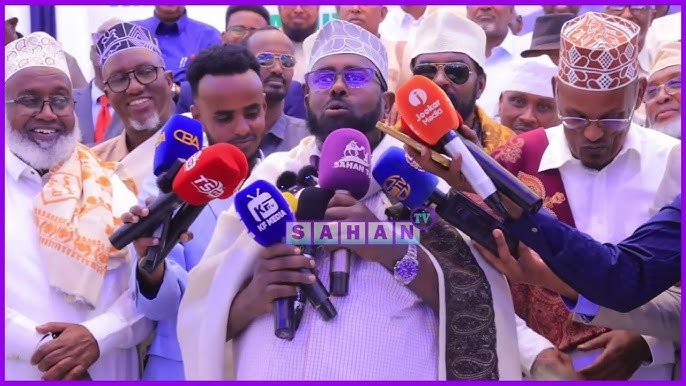
A Plastic Hat. A Microphone. A Few Dollars. How Somaliland’s State Is Being Undermined From Within.
The Republic’s structural integrity is facing a silent but lethal assault—not from external enemies alone, but from an internal ecosystem security circles increasingly describe as the Media Mafia. This is not journalism. It is not free speech. It is a transactional machinery that converts tribal grievance into public disorder and sells national stability for pocket change.
At its core, the Media Mafia functions as a logistical bridge between corrupt traditional leaders and chaos. Investigative assessments show that large segments of the media have abandoned their role as public watchdogs and recast themselves as mercenaries. Airtime is no longer earned through credibility or public interest, but bought—often for less than one hundred dollars. With that payment, national security protocols are bypassed and inflammatory rhetoric is injected directly into the public bloodstream.
This is the most dangerous evolution of the “Plastic Hat” crisis: the microphone-for-hire economy.
Whenever a traditional leader seeks to issue threats against the government, provoke a rival clan, or elevate himself above the law, a willing media partner is ready. These so-called journalists provide more than equipment. They provide legitimacy. They transform individuals with no constitutional standing—often illiterate, often disconnected from modern governance—into national actors. In doing so, they are not reporting power; they are manufacturing it.
The result is a feedback loop of destruction. The louder the provocation, the more airtime it receives. The more division it creates, the more profitable it becomes. Conflict is rewarded. Restraint is ignored. Peace does not trend; outrage does. The microphone becomes a weapon, and the newsroom becomes a command post for a shadow government.
The tactical danger is profound. For a few dollars, the cultural fabric of the nation is shredded. Minor figures are inflated into kingmakers. Manufactured disputes are framed as existential crises. Tribal ego is elevated above constitutional order. In this parallel reality, the word of a self-appointed leader carries more weight than the law of the land. The state is not defeated—it is bypassed.
This is not accidental. It is systematic.
By monetizing rage and broadcasting incitement, the Media Mafia has become the primary engine of social fragmentation. It has normalized hostility toward institutions and trained communities to see disorder as representation. In effect, it has replaced citizenship with spectacle and governance with noise.
The response must be equally clear-eyed. This is not a press issue. It is a national security issue.
The state must move decisively to regulate the media space and criminalize paid incitement. Financial links between traditional coronations and media coverage must be traced. Journalists who accept payment to broadcast threats, calls for unrest, or tribal hatred must be treated not as commentators, but as accomplices. Freedom of expression does not extend to the sale of national destabilization.
Somaliland cannot survive a dual power system. And it cannot survive a media class that functions as the public relations wing of a tribal insurgency.
If the microphones remain for hire, the shadow government will keep growing—until it consumes the state itself.
EDITORIAL
Ted Cruz Emerges as Somaliland’s Strongest Ally in the U.S. Senate
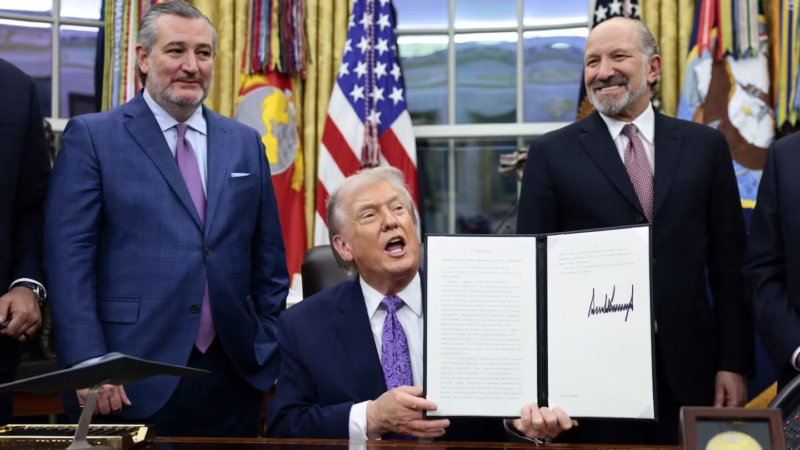
Why Senator Ted Cruz’s Somaliland Advocacy Signals a Strategic Shift in U.S. Horn of Africa Policy.
Senator Ted Cruz’s backing of Somaliland marks a turning point in U.S. strategy toward the Horn of Africa, linking Red Sea security, China containment, and the Trump Doctrine.
In the quiet corridors of the Russell Senate Office Building, a subtle but consequential shift in Washington’s approach to the Horn of Africa is taking shape. While official State Department language remains deliberately cautious, Senator Ted Cruz has emerged as the most forceful and consistent voice reframing Somaliland not as a diplomatic anomaly, but as a strategic necessity.
His recent remarks reflect more than sympathy for an unrecognized democracy; they signal a recalibration of U.S. interests anchored in maritime security, great-power competition, and hard geopolitical math.
Cruz’s intervention departs sharply from the traditional humanitarian framing that has long defined Somaliland discussions in Washington. Rather than leaning on democracy promotion alone, he has grounded his case in operational realities.
Somaliland’s control of an 850-kilometer coastline along the Gulf of Aden, its record of counter-piracy enforcement, and its stability amid regional collapse place it squarely within U.S. security priorities. At a moment when the Red Sea is under strain from Houthi attacks, Iranian logistics networks, and transnational militant cooperation, Cruz is arguing that ignoring Somaliland is no longer a neutral policy choice—it is a strategic risk.
For U.S. Africa Command and naval planners, this argument resonates. The Red Sea corridor is no longer a peripheral theater; it is a global chokepoint where commercial shipping, energy flows, and military access converge.
Cruz’s pointed questioning of the State Department about expanding cooperation with Somaliland sends a clear message to the bureaucracy: the long-standing posture of non-recognition is increasingly misaligned with U.S. security needs.
Equally significant is how Cruz has placed Somaliland within the broader framework of great-power rivalry. By highlighting Hargeisa’s alignment with democratic partners such as Taiwan and Israel, he has woven Somaliland into the emerging architecture of alliances countering authoritarian expansion.
Cruz’s reminder that Beijing reacted angrily to his earlier call for President Trump to recognize Somaliland underscores just how sensitive the issue has become.
Behind the scenes, Somaliland’s own diplomacy has strengthened Cruz’s hand. Intelligence and defense sources indicate that Hargeisa has quietly offered concrete forms of cooperation that appeal directly to Washington’s strategic instincts.
At the same time, Somaliland’s untapped mineral resources fit neatly into America’s drive to secure critical supply chains independent of Beijing.
Cruz’s advocacy is therefore not symbolic. By pressing for institutional engagement—through defense legislation, security cooperation, or executive action—he is laying the groundwork for a policy shift that acknowledges a long-standing reality: Somaliland already functions as a sovereign state and a reliable partner, even if it lacks formal recognition.
As instability deepens elsewhere in the Horn, Washington’s calculus is changing. The question now is not whether Somaliland matters to U.S. strategy, but whether the United States will move quickly enough to formalize a partnership before rivals exploit the vacuum.
EDITORIAL
How Somaliland Defeated a Destabilization Attempt in Borama

IRRO’S SILENT STRATEGY + AWDAL’S POWER HOUSE ELDERS = FOREIGN PLOT COLLAPSES.
The rapid stabilization of Borama after a brief security disruption offers more than a local success story—it is a powerful demonstration of Somaliland’s evolving national resilience, rooted in a hybrid system where traditional authority and state strategy operate in tandem.
For a nation consistently targeted by external actors seeking to fracture its unity, the Borama episode has become a case study in how indigenous conflict-resolution mechanisms, paired with a calibrated presidential strategy, can neutralize destabilization attempts before they metastasize.
The Awdal Model: When Traditional Authority Becomes a Security Instrument
The Awdal Model: Traditional Leaders as Architects of Security
The intervention by Awdal’s traditional leaders was neither symbolic nor ceremonial. It was a strategic act of governance.
Two features stood out:
Diagnostic Clarity:
Local elders immediately reframed the unrest as an externally engineered trap—an interpretive shift that stripped agitators of their narrative and prevented the escalation that foreign actors rely on. This diagnostic accuracy is the cornerstone of Somaliland’s traditional peacekeeping culture: the ability to distinguish genuine grievances from manufactured crises.
Proactive Ownership:
Their coordination with police and security forces, followed by a sweeping public call for calm, reasserted social order from within the community itself. Borama’s residents responded swiftly, demonstrating the depth of civic trust and the region’s historical role as Somaliland’s intellectual and peace-anchoring center.
This “Awdal Model” reinforces a long-standing truth: Somaliland’s elders are not mere custodians of tradition—they are frontline stabilizers whose authority is indispensable to the republic’s internal security architecture.
President Irro’s Strategic Perimeter: Steering Without Overreach
President Abdirahman Mohamed Abdullahi Irro’s handling of the incident was equally decisive. Rather than rushing in with force, the President set a deliberate strategic frame, allowing traditional leaders to lead while ensuring that state institutions stood ready to reinforce the peace.
Three principles defined his approach:
Trust in Indigenous Mechanisms:
By empowering traditional leaders instead of overshadowing them, the President avoided fueling grievances or offering foreign actors the optics of state heavy-handedness.
Historical Intelligence:
Awdal is the birthplace of Somaliland’s modern statecraft. Irro’s respect for this legacy strengthened local ownership and restored normalcy without coercion.
Executive Foresight:
Irro recognized that the Borama disturbance fit the pattern of external destabilization used previously in Lasanod. His ability to read the wider geopolitical implications ensured that security forces responded with restraint, precision, and clarity of purpose.
The Lasanod Lesson: A Permanent Reminder of the External Playbook
The comparison with Lasanod is not merely historical—it is strategic. The same actors who injected money, propaganda, and armed agitation into Sool attempted to replicate their methods in Awdal. This time, it failed.
Borama’s rejection of the destabilization script is a significant setback for Somaliland’s adversaries. It confirms something new: the national public has developed a sharper awareness of foreign manipulation, and the state’s conflict-response mechanisms are maturing.
Toward a Formal Architecture of Resilience
The Borama incident exposed foreign intent—but it also validated Somaliland’s internal strengths. To protect the nation against more sophisticated destabilization campaigns, the government’s next phase must formalize this resilience:
Institutionalize the traditional-state partnership through early-warning systems anchored in community leadership.
Build an information-defense doctrine capable of countering coordinated disinformation campaigns.
Invest in economic and social anchors in Awdal and other strategic regions to eliminate the vulnerabilities adversaries exploit.
Borama’s peaceful outcome is not an accident. It is the result of a political culture that knows how to defuse crises before they become national emergencies. And it underscores a deeper truth: Somaliland’s greatest defensive weapon is not its military strength, but its social architecture—one where modern governance and traditional authority reinforce each other in a deliberately crafted system of peace.
Analysis
Somaliland’s President Irro Engulfed by Political Fragmentation
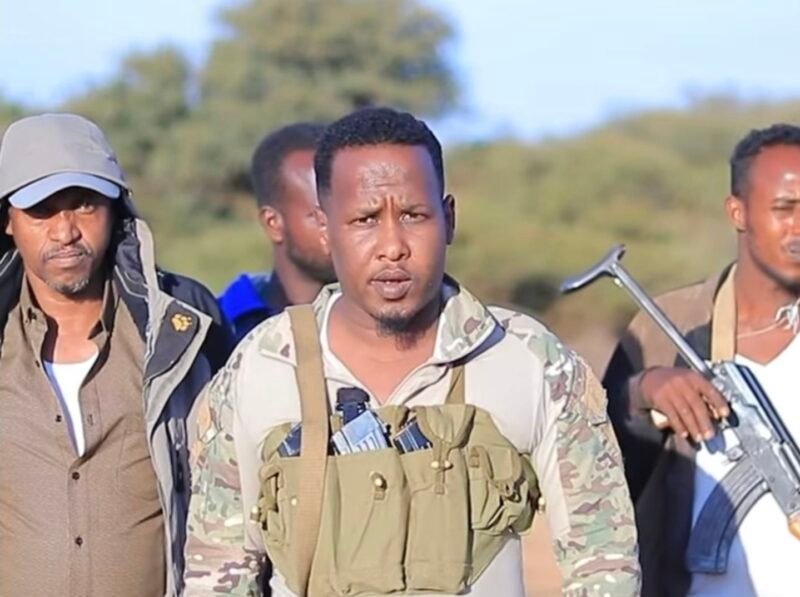
Clan Tensions and Cabinet Chaos: Inside President Irro’s Most Dangerous Political Test.
HARGEISA — Not even a year into his presidency, Abdirahman Mohamed Abdullahi Irro finds himself boxed in by a convergence of political crises that threaten to overwhelm his administration.
What was meant to be a period of consolidation after a peaceful transfer of power has instead devolved into a landscape marked by factionalism, clan pressures and mounting diplomatic vulnerabilities. The stability that Somaliland has long projected to the world is now showing visible cracks.
The confrontation involving former president Muse Bihi Abdi at Cigaal International Airport has become the catalyst for a broader political unraveling.
What began as a dispute over vehicle access quickly escalated into gunshots, public outrage and, most dangerously, the mobilization of armed groups aligned with Bihi’s political base.
Their demand for an official government apology—accompanied by threats of retaliation—amounts to political coercion rooted in clan-based muscle. For a state that defines itself by its break from the militia politics of early 1990s Somaliland, this moment is deeply destabilizing.
Instead of containing the fallout, the government’s response intensified it. A statement by Minister of the Presidency Khadar Hussein Abdi—offering an apology while asserting that “Muse Bihi was wrong”—landed with equal parts confusion and frustration.
It signaled not conciliation but disarray, feeding into a growing perception that the executive is reactive, divided and unable to project coherent authority. For an administration already struggling to demonstrate internal discipline, the episode has become a symbol of weakness.
The airport standoff is only the most visible manifestation of a larger internal drift. Within Irro’s cabinet, conflicting public messages have become common, reflecting either poor coordination or deep ideological fissures. Both interpretations point to a governing structure that lacks cohesion at a time when unity is essential.
More alarming is the resurgence of clan politics, an old fault line that Somaliland worked for decades to contain. The recent dispute over the publication of the “Xeer Iise” customary law book revealed the administration’s inability to manage competing clan pressures.
The government’s abrupt reversal—from accepting the book to banning it amid rising tensions—underscored an executive caught between asserting national authority and placating powerful local constituencies. Meanwhile, clan elders increasingly dominate media debates in place of elected officials, signaling a drift away from institutional governance toward tribal arbitration.
This internal fragmentation comes at the worst possible moment. President Irro campaigned on the promise of achieving international recognition by late 2025—a deadline that now appears politically and diplomatically unrealistic.
Recognition requires stability, unity, and a government capable of demonstrating institutional maturity. Instead, Somaliland today presents an image of fracturing political order just as Somalia is exploiting diplomatic tools—such as new e-visa restrictions—to reinforce its own sovereignty narrative.
The cumulative effect is stark: President Irro is not navigating a temporary turbulence but confronting a structural crisis that threatens the foundations of Somaliland’s political model.
If unchecked, these overlapping fractures risk eroding three decades of hard-won statehood and weakening the very case for recognition that once defined his presidency.
Analysis
Why Somaliland Is a Target of Global Disinformation Campaigns—and Who Is Behind Them

Somaliland Faces a Coordinated Misinformation Assault: Evidence of Foreign Influence Campaigns Emerges.
The daily churn of online debate in Somaliland has begun to reveal something far more consequential than the fleeting noise of social media.
What once looked like ordinary digital conversation has hardened into a battlefield where no armies appear and no shots are fired, yet the damage reaches deeper than any conventional conflict.
Somaliland, like many small and transitional democracies, now sits squarely in the sights of a relentless information war—one designed to fracture trust, poison public discourse, and destabilize political gains at a moment when the country is making unprecedented diplomatic strides.
Under President Abdirahman Mohamed Abdullahi Irro, Somaliland has entered a rare period of international visibility, engaging with Djibouti, Kenya, the UAE, Qatar, and other regional partners in ways that strengthen its claim to recognition.
But progress has also made Somaliland a target. External actors—state-aligned, interest-driven, or opportunistic—have exploited digital platforms to push misinformation, inflame internal tensions, and project the illusion of widespread dissent.
The aim is to create psychological disruption before political disruption: to weaken a rising state by attacking its confidence from within.
A central element of this campaign is the weaponization of diaspora voices. A segment of Somalilanders living in Europe and North America have used geographic distance as a shield, spreading radical rhetoric, financing local unrest, and fueling clan-based hostility with an intensity rarely seen among those who actually live inside Somaliland.
Germany’s investigation into Somali influencers active during the Las Anod conflict—involving individuals who openly boasted about militia activity despite holding no valid asylum status—revealed a deeper security gap.
These actors not only import their conflicts into host countries, but they export new waves of grievance back home, often with devastating effect.
Such influence operations are neither spontaneous nor unique to Somaliland. A 2018 RAND Corporation study analyzing more than 22 million tweets exposed how foreign propaganda networks impersonate local identities to manipulate national conversations.
These networks mimic dialects, humor, and social norms to project manufactured sentiments as if they were authentic public opinion.
For years, versions of this tactic circulated widely in Somaliland’s digital sphere. Accounts posing as locals—writing in colloquial Somali, referencing local grievances—were later revealed through platform geolocation tools to be operating thousands of miles away.
The revelation was less a surprise than a confirmation of what many suspected: a coordinated effort to simulate internal division where none existed.
The objective of such campaigns is rarely to persuade people of a specific lie. It is to erode the very idea of truth. Once the public distrusts all narratives—official, journalistic, or grassroots—the battlefield is won. And in a region shaped by fragile institutions and clan-based political dynamics, the consequences of that fog are immediate and dangerous.
Somaliland’s adversaries have adapted their operations to the country’s changing geopolitical environment. As President Irro accelerates diplomatic outreach, the disinformation directed at him has intensified.
stories, manipulated videos, and coordinated misinformation echo across social platforms moments after major foreign policy announcements. Reliable sources indicate these attacks are not isolated but synchronized by anti-Somaliland factions seeking to undercut the country’s growing legitimacy.
Countering this offensive requires a strategy that extends beyond policing rumors. The government must formally alert host nations to the activities of diaspora actors who use Western legal protections to direct instability back home.
There is precedent: European states—Germany in particular—have begun scrutinizing communities whose online incitement has real-world consequences. Somaliland’s diplomatic corps can and should press for accountability.
At home, the Ministry of Information must confront the foundational weakness that makes these campaigns effective: a population that has never been structurally trained to interrogate what it sees online.
Media literacy is no longer an optional reform; it is a national security imperative. A core curriculum that teaches young people how to assess sources, identify manipulation, and understand algorithmic amplification would do more to defend the country than any reactive press conference.
Public institutions must also communicate faster and more transparently, giving citizens timely, factual information before manufactured narratives fill the void.
Somaliland has not been alone in confronting this landscape. Saudi Arabia, among others, has shown how sustained awareness campaigns and improved verification tools can help societies differentiate real sentiment from engineered outrage.
But Somaliland’s resilience will ultimately depend on individual vigilance—the ability of citizens to pause, question, and examine before sharing the content that adversaries rely on to inflame division.
The digital conflict facing Somaliland is a psychological one: a war against trust, identity, and the fragile sense of shared belonging that sustains any nation.
Its weapons are cheap, its operatives invisible, and its impact profound. Yet its greatest vulnerability remains the informed citizen. No technology—no matter how sophisticated—can substitute for a society that refuses to be manipulated.
Countering the Threat: Hostile Information Campaigns Against Somaliland
Somaliland’s Information War Is a Threat to National Security
-

 Analysis11 months ago
Analysis11 months agoSaudi Arabia’s Billion-Dollar Bid for Eritrea’s Assab Port
-

 Interagency Assessment2 months ago
Interagency Assessment2 months agoTOP SECRET SHIFT: U.S. MILITARY ORDERED INTO SOMALILAND BY LAW
-
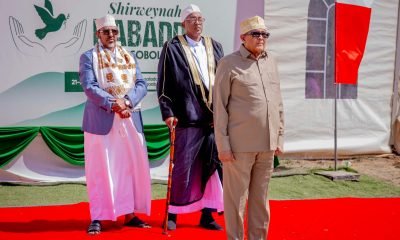
 Somaliland3 months ago
Somaliland3 months agoSomaliland Recognition: US, UK, Israel, and Gulf Bloc Poised for Historic Shift
-

 EDITORIAL1 year ago
EDITORIAL1 year agoDr. Edna Adan Champions the Evolving Partnership Between Somaliland and Ethiopia
-
Top stories2 years ago
Ireland, Norway and Spain to recognize Palestinian state
-

 Russia-Ukraine War6 months ago
Russia-Ukraine War6 months agoFibre-Optic Drones Shift Ukraine’s Drone Warfare
-

 ASSESSMENTS10 months ago
ASSESSMENTS10 months agoOperation Geel Exposes the Truth: International Community’s Reluctance to Embrace Somaliland as a Strategic Ally
-
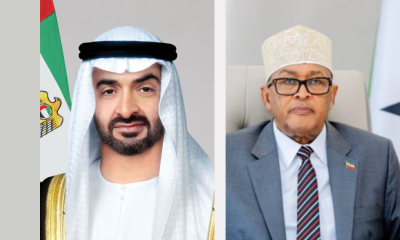
 Somaliland1 year ago
Somaliland1 year agoSomaliland and UAE Elevate Ties to Comprehensive Strategic Partnership








